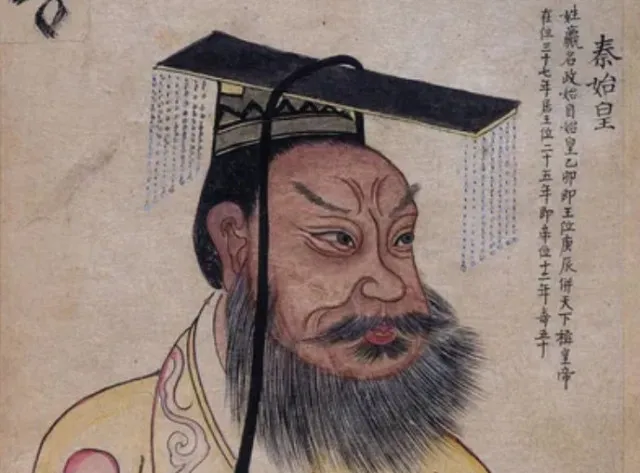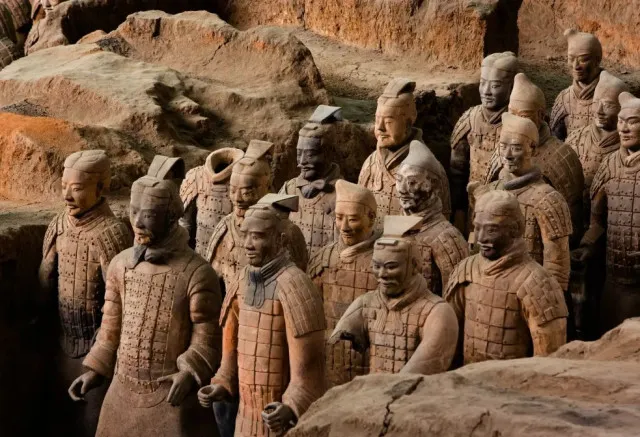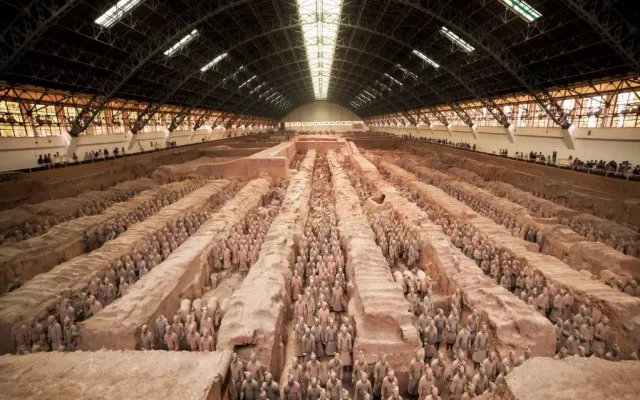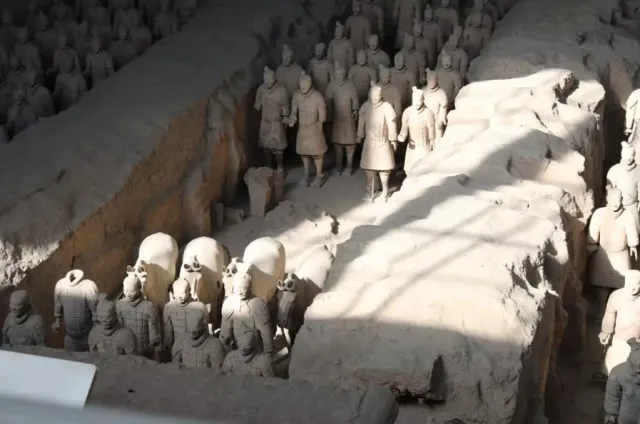Scientists avoid opening the tomb of China’s first emperor due to fears of toxic traps and ancient curses within.
The tomb of Qin Shi Huang, the first emperor of China, is a site full of mystery and history.
It is located in Shaanxi Province and is famous for the Terracotta Army that stands guard over it.
Although this burial site has fascinated many, scientists are afraid to open the tomb for several reasons.
Who is Qin Shi Huang?
Qin Shi Huang became emperor in 221 BCE and is known for unifying China. He also built the Great Wall and created a standard writing system.
His rule changed the country forever, but his burial site remains largely unexplored since its discovery in 1974 by farmers.

The Terracotta Army guardians of China’s first emperor
They stumbled upon the Terracotta Army, which is made up of thousands of life-sized statues.
These statues include soldiers, chariots, and horses, all meant to protect the emperor in the afterlife.
Over 8,000 soldiers are believed to be buried in three main pits. Archaeologists have found not only warriors but also figures like musicians and acrobats.

The statues were originally painted in bright colors, but most of this paint has faded away over time.
The purpose of the Terracotta Army was to serve and defend Qin Shi Huang in the next world, showing the emperor’s desire for a grand legacy.
Scientists have never dared to open up tomb of China’s first emperor for a chilling reason.
Despite the impressive findings, archaeologists have not opened the actual tomb of Qin Shi Huang.
There are practical reasons for this hesitation.

One major concern is the preservation of the site.
Another frightening reason is the presence of booby traps.
Historical accounts suggest that ancient tombs often contained traps to protect the dead from grave robbers.
These traps could pose a serious risk to anyone who enters the tomb.

Scientists prefer to avoid risking their safety by falling victim to traps set over two thousand years ago.
Additionally, the tomb is said to contain high levels of mercury.
Qin Shi Huang had a fascination with this substance, believing it could grant him eternal life. Mercury is toxic and can cause serious health problems.
Anyone who enters the tomb could face dangerous levels of this element, creating a hazardous environment for exploration.
The combination of these factors has led scientists to approach the tomb with caution.
They are waiting for more advanced technology to help them explore without causing damage.
Techniques like ground-penetrating radar may allow them to gather information without disturbing the site.

The tomb of Qin Shi Huang remains one of the greatest mysteries in history.
Its unopened doors continue to spark curiosity around the world. People wonder what treasures and secrets lie within.
The Terracotta Army has already revealed much about ancient Chinese culture, but the tomb itself holds even more unknowns.
For now, the tomb will stay closed, preserving its ancient secrets. Scientists hope to find a safe way to explore it in the future.